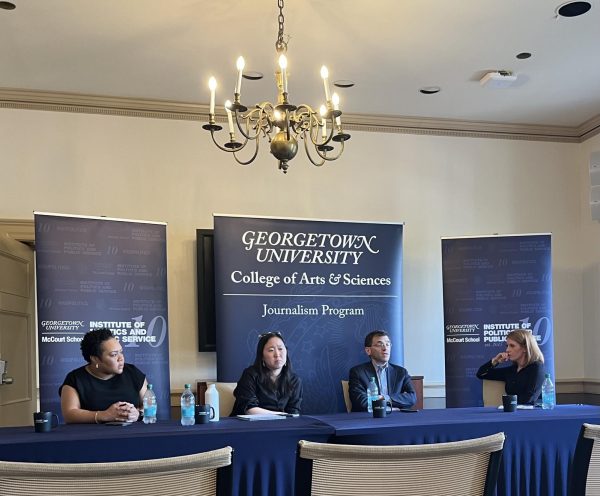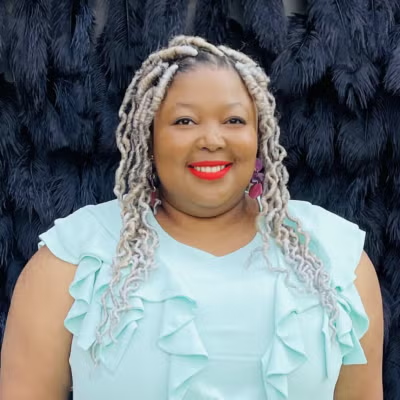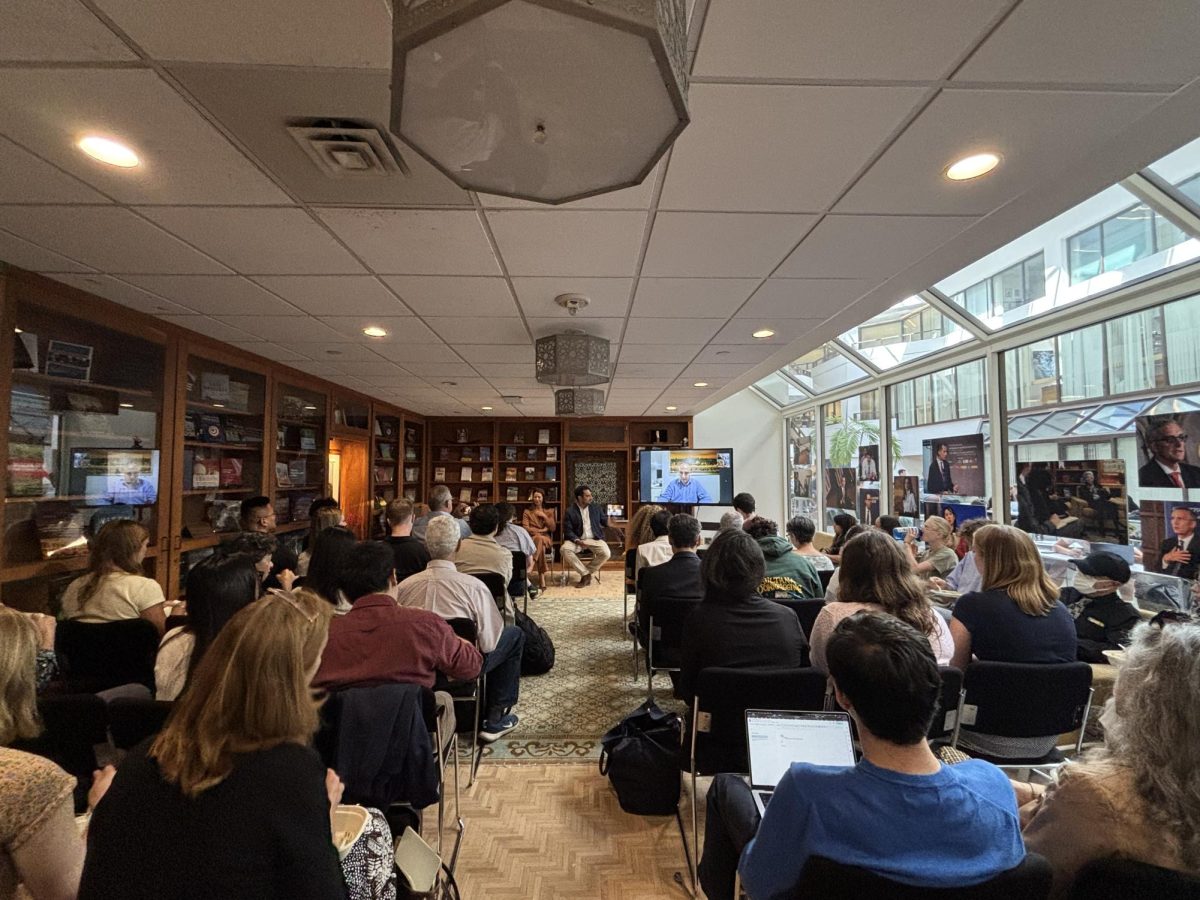Four prominent political journalists argued President Donald Trump has limited journalists’ access to the White House and transformed the federal government’s relationship with the media at a Georgetown University panel April 22.
Georgetown’s journalism program hosted the event, which featured Peter Baker, The New York Times’ chief White House correspondent; Seung Min Kim, an Associated Press (AP) White House correspondent; and Yamiche Alcindor (COL ’09), a NBC News White House correspondent. Karen Travers (COL ’00, GRD ’03), an ABC News White House correspondent and former Georgetown University Institute of Politics and Public Policy fellow, moderated the panel, where the journalists described how Trump has upended journalistic norms in his second term.
Baker said Trump understands politics better in his second term, allowing him to be a more effective political actor.
“This time around, he has four years under his belt and four years to think and prepare for it, along with his people,” Baker said at the event. “So what you see now, I think, is the product of somebody who actually knows how to get done the things he talked about but didn’t do in the first term.”

Alcindor said Trump’s second term has forced journalists to adapt as government officials become increasingly antagonistic.
“People are changing, the pool is changing,” Alcindor said at the event. “Everything is changing. And the people who are in the White House now, they feel like loyalists for President Trump — they really see the government as part of the problem.”
“That’s why you have Elon Musk and other people just slashing things left and right,” Alcindor added. “You didn’t see that the first time around.”
Trump restricted the AP’s access to White House press briefings because it did not adopt Trump’s change of the name of the Gulf of Mexico to the Gulf of America. The White House has also retaliated against organizations and individuals who have spoken out against Trump.
Alcindor said Trump’s attacks on journalists and individuals have made it more difficult to encourage sources to speak on the record about important issues.
“There’s this real fear that I get from talking to sources, whether talking to a law firm, or talking to other reporters or talking to business people,” Alcindor said at the event. “I think there’s this real fear that revenge at the hands of President Trump and his allies could really come down on any American citizen at any time.”
The White House also announced it would determine which reporters to include in the press pool, where certain journalists get access to the White House to inform all news organizations, wresting control from the White House Correspondents’ Association, which has made the decision for over a century.
Baker said the White House’s new method is undemocratic and undermines journalists’ authority.
“Now they’re saying they get to pick, and that means that we’re not sending our representatives,” Baker said. “They’re picking and choosing, and it’s a part and parcel of a president who believes that he ought to be the one in charge.”
Kim said that when she is a member of the press pool, she feels a responsibility to think about other journalists and the public.
“That’s the whole point of a pool — we’re the eyes and ears for the rest of the press corps and, by proxy, the rest of the public, who can’t be there with the President,” Kim said at the event. “So you always have to be thinking, what is the broadest interest to everyone?”
Kim said she prioritizes the human aspects of her reporting when covering complex and difficult political topics.
“I just always think of how this directly affects the person who reads my story, how it affects their pocketbook, how it affects their daily behavior,” Kim said. “I personally think that’s where the AP is strongest, because we have so many people across the country and across the world and can get those voices and get that sense of that impact very quickly.”
Alcindor said she and other journalists remain committed to their profession even as younger generations prefer social media like Instagram (IG) to traditional journalism.
“All those TikTok influencers or IG influencers, as good as they might be, as entertaining as they might be, as innovative as they might be, they are relying on journalists who are actually doing the work on the front lines,” Alcindor said. “I think I can speak for my colleagues to say, people who become journalists, it’s because you actually want to get information to people.”








